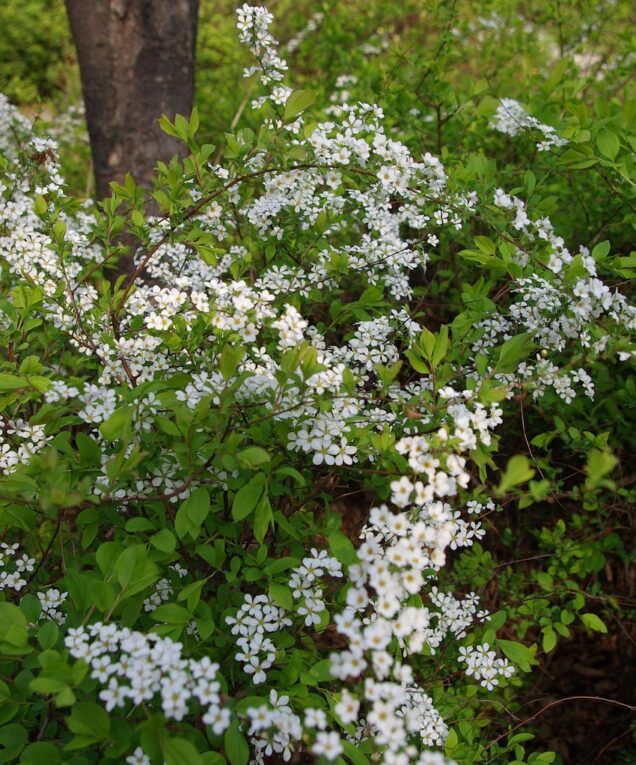Meadowsweet (Filipendula ulmaria) is a perennial herb native to Europe and commonly found in damp meadows and along riverbanks. The plant features tall stems, jagged green leaves and clusters of creamy-white, almond-scented flowers.
You can often smell meadowsweet before you see it. Its scent is sweet, warm and faintly reminiscent of almond, vanilla and marzipan. It has a long history of medicinal and ceremonial use, dating back to the Druids, who considered it one of their sacred herbs.
Elegant, effective, and delightfully fragrant, Meadowsweet offers a beautiful example of how nature balances power with gentleness. Whether you’re easing a headache, calming a sore tummy, or just enjoying its floral aroma in tea, this wildflower is a true herbal gem.
✨ Traditional Uses of Meadowsweet
With its frothy cream-coloured flowers and sweet, almond-like scent, Meadowsweet is one of Britain’s most elegant wild herbs. But behind its gentle appearance lies a powerful remedy once so respected that it became the original source of aspirin. From soothing pain to supporting digestion, this hedgerow favourite is a must-know for herbal enthusiasts.
Meadowsweet contains natural salicylates, flavonoids and tannins, which contribute to its traditional use as a remedy for pain, inflammation, and digestive discomfort. It has been used to make teas, tinctures, and infused oils, and is especially valued for its gentle pain-relieving and stomach-soothing effects.
Meadowsweet was commonly used in folk medicine throughout Europe and the British Isles. In the Middle Ages, it was scattered on floors to freshen the air and repel pests — hence its name.
Historically, Meadowsweet was used for:
- Pain relief (especially headaches and joint pain)
- Fever reduction
- Digestive support
- Calming acidity, heartburn, and ulcers
- Easing urinary tract inflammation
💚 Health Benefits of Meadowsweet
Meadowsweet offers a gentle yet effective range of benefits for pain, digestion, and inflammation. Check out the list below to see how this elegant wildflower supports your health, naturally.
✅ Meadowsweet for Natural Pain Relief
Meadowsweet contains salicylates, the same compounds that led to the development of aspirin, but in a gentler, whole-plant form that’s kinder to the stomach. It’s traditionally used for:
- Headaches
- Arthritis
- Muscle and joint aches
- Menstrual cramps
✅ Meadowsweet Supports Digestion
Meadowsweet is particularly beloved by herbalists for acid-related digestive complaints. It helps balance stomach acid, soothe irritation and is often used for heartburn, indigestion, ulcers and mild gastritis.
✅ Anti-inflammatory & Fever-Reducing Effects of Meadowsweet
Meadowsweet gently reduces inflammation and supports the body’s natural fever response. It’s a useful herb to have on hand during colds and flus, especially when aches and chills are involved.
✅ Meadowsweet for Urinary Tract Support
Its mild astringency and anti-inflammatory action make meadowsweet helpful in soothing the bladder and urinary tract during mild infections or inflammation.
🍵 How to Use Meadowsweet
Below we will explore the various methods of using Meadowsweet. Use the aerial parts (flowers and top leaves), preferably harvested in summer and dried out of direct sunlight.
• Herbal Tea
- Steep 1–2 tsp of dried meadowsweet flowers and leaves in hot water for 10–15 minutes.
- Drink 1–3 times daily for pain relief, digestion, or colds.
• Tincture
A tincture made from the aerial parts can be used for more concentrated support, especially for joint or menstrual pain.
• Infused Oil or Compress
While less common, meadowsweet can be infused into oil and used topically for arthritic joints or muscle pain.
Shopping
| Visit the new SHOPPING page for a wide selection of great products! |
Always take care when taking herbs and Read Our Disclaimer.
⚠️ Meadowsweet Notes / Side Effects & Cautions
Meadowsweet is considered very gentle and well-tolerated, but be aware of the following:
- Avoid if allergic to aspirin/salicylates (e.g., asthma triggered by aspirin, or aspirin sensitivity)
- Not recommended for children under 12
- Avoid in pregnancy or breastfeeding unless advised by a practitioner
- May interact with blood-thinning medication — consult your healthcare provider if on anticoagulants
💚 Want to discover more healing plants? Explore our full herbal library at herbknowledge.net/herblist/

